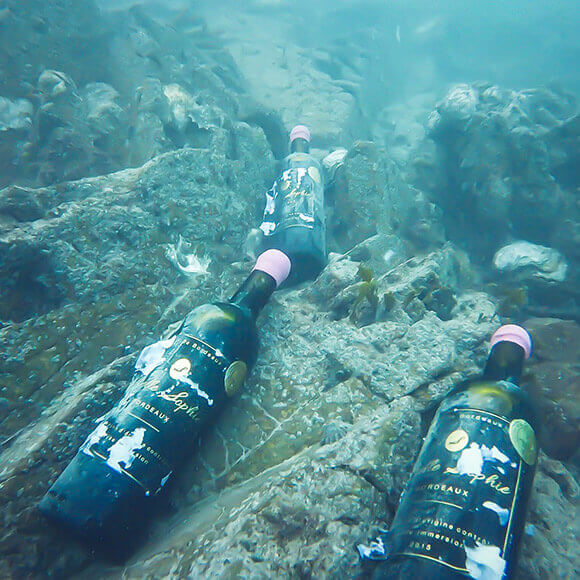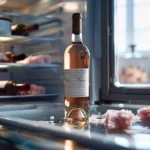Wine lovers and wine experts alike are fascinated by wines aged underwater, a method which involves immersing bottles of wine in the sea or lake, and which is attracting growing interest. But what effects does this maturation have on the wine? Why is this technique so intriguing?
A method inspired by archaeological discoveries
The idea of aging wine underwater doesn't come from nowhere. Archaeologists have discovered bottles of wine in centuries-old shipwrecks. After analysis, the experts found that these wines had retained some astonishing characteristics. These observations have inspired some producers toexperiment with wine-making underwater.
The first experiments date back to 2010. Winemakers immersed bottles in deep water to observe the effects on wine maturation. The aim was to study whether the aquatic environment could offer an interesting alternative to traditional cellar aging.
Unique underwater conditions

The aging of wine in a cellar depends on precise conditions: stable temperature, darkness and controlled humidity. Underwater, these parameters change slightly, but offer unexpected advantages.
- Constant temperature: Water acts as a thermal insulator. At depths of several meters, the temperature varies little, guaranteeing even maturation of the wine.
- Absence of light: Unlike conventional cellars, where only a faint light sometimes remains, the deep sea offers total darkness, preventing UV damage.
- Underwater pressure: The pressure exerted by the water seems to influence the wine by acting on the structure of the tannins. Some experts believe that this particular condition improves the balance of wines aged underwater.
- Gentle movements: marine currents ensure natural bottle mixing, favoring slow, homogeneous evolution.
Which wines are suitable for underwater ageing?
Not all wines react in the same way when immersed in water. Tannic red wines, sparkling wines and certain barrel-aged white wines seem to be the best candidates for this method.
- Red wines rich in tannin, such as certain Bordeaux or Rioja wines, benefit from underwater aging by developing rounder, less aggressive aromas.
- Sparkling wines, particularly champagnes and cavas, benefit from a slower evolution, which reinforces their finesse.
- White wines for ageing, often aged in barrels, show subtle transformations, with a good preservation of freshness and a better integration of wood.
Effects on tasting
Wine lovers often notice marked differences between a cellar-aged wine and an underwater wine.
- Silkier texture: Some experts have noted a reduction in astringency sensations, particularly on powerful red wines.
- More intense aromas: Wines aged underwater develop more complex notes, with greater intensity of fruit and spices.
- Preserved freshness: Thanks to underwater conditions, wines retain an interesting liveliness, even after several years of aging.
Where can I find wines aged underwater?
Several wineries around the world have embarked on underwateroenological experiments. Pioneering regions include :
- Spain: The Cantabrian region has seen the birth of several projects to immerse bottles in the Atlantic Ocean.
- France: In Brittany, some wineries are testing underwater wine aging in cold water.
- Italy: In Sardinia, winegrowers exploit the seabed to give their bottles a unique maturing process.
- Chile and Argentina: With their extensive coastlines, these countries are also exploring this original winemaking method.
The challenges of underwater ageing
Despite its promise, this technique poses several questions and challenges:
- High cost: immersing cylinders requires specific logistics and adapted infrastructures.
- Strict regulations: Certain laws govern the practice to prevent marine pollution.
- Lack of official certification: There is as yet no precise appellation or standard for underwater wines, which complicates their marketing.
Researchers are continuing to study this method to better understand its effects and optimize its use. In the meantime, curious wine-lovers can already discover some of the bottles produced using this innovative technique.
Conclusion: a promising method
Underwater aging of wines is a fascinating technique that offers interesting prospects for wine lovers and producers alike. Although challenges remain, the results obtained to date are promising and are arousing growing interest in the wine world.
If you enjoyed this article, don't hesitate to read the following article "How to combine wine and truffles for a perfect marriage?", which might also interest you!





